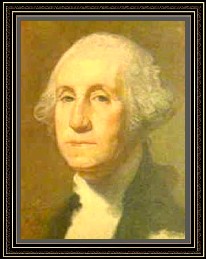A Conservative Viewpoint
- Northern Migration Into N.C. Could Favor Republicans
Article by Bob Steinburg
- Edenton, North Carolina: Cradle of the Colony

The political landscape in eastern North Carolina is changing. New party voter registration numbers indicate the Democrats’ long dominance in this state is weakening. For the first time in modern history, Democrat registrations have fallen below 45 percent, while total Republican registration remained flat at 34 percent. Democrats gained net voter registrations in 29 counties, while Republicans had gains in 45 counties. Many of the Republican advances came here in the East.
Republicans had net gains in registration over Democrats in Brunswick, Johnston, Craven, Wayne, Currituck, Edgecombe, Duplin, Camden, Northampton, Beaufort, Greene, Chowan, Pamlico, Gates, Martin and Carteret. Democrats had a net gain of 12 new registrations over Republicans in Dare County.
New net registrations in Pitt County favored Democrats over Republicans by two to one, Nash County by almost three to one. In New Hanover County Democrats had 373 net registrations over Republicans. Martin County had a plus 36 registration advantage for Democrats, who also had a single digit advantage in Tyrell County.
Changes in the number of Party enrollments can be attributed in part to the continuing rise in unaffiliated voters. In addition, voter rolls are being culled by local Boards of Elections. In 2006, election boards were required by law to implement “statutory list maintenance procedures.” In other words, let’s get the folks who have died, moved away, or who are no longer eligible to vote, off the rolls.
Democrats have a slight advantage in metropolitan areas, but in most of the state’s counties, Republican registrations continue to outperform those of Democrats.
In the 2006 state House and Senate elections, more total votes were cast for Republicans than Democrats. Yet Democrats still control both houses of the state legislature through voting district gerrymandering.
Gerrymandering is the process of altering borders or boundaries to give the party in control an unfair advantage in keeping them in power. But when one party’s candidates are outpolling the other party’s candidates, and yet aren’t even close to controlling either house of the legislature, something is wrong.
If you are a true conservative and really believe in conservative values, than you have no way of expressing those beliefs as a Democrat. In effect, you end up being untrue to your values and to yourself.
Nationally, the Democratic Party is heavily influenced by special interest groups like the National Education Association, gay and lesbian rights groups, peace groups, radical environmentalists, pro- abortionists and labor unions. None of these groups would ever be accused of being conservative.
Conservative values are the foundation of the Republican Party. Barry Goldwater was the first conservative to run for President in 1964. Soundly defeated at the polls, he was successful in giving that movement and its ideals national exposure and a base on which to build.
It was 16 years before the Republican Party would nominate another conservative for President. Ronald Reagan’s campaign captured the hearts and minds of not just Republicans but Democrats who no longer felt their Party’s message was resonating with them. These “Regan Democrats” were the key to Ronald Reagan’s ascension to the rank of Commander and Chief.
The Sun Belt is the strength of the Republican Party. Folks moving here are primarily transplants. Many in the Northeast have come south to retire or to escape the wrath of the tax man. The overregulation of businesses, sometimes their own, have brought others. Unions killed the steel business and currently the American automobile industry is fighting for its survival. Hiring has been replaced by layoffs and terminations. Doors that once read “Welcome – open for business,” now read, “Closed,” or “Out of business.”
Many Northern states are referred to as “progressive.” Their liberal and often mismanaged social programs, have led to increasing numbers of unemployed and indigent citizens from elsewhere, to seek refuge there. This leads to further economic stress on those state and local government agencies responsible for providing assistance to the new arrivals. The added social burdens mean higher taxes for everyone. Fed-up, many folks finally say “enough!” “I’m looking for someplace to live where there are others like me and where I can make ends meet.” That someplace is often North Carolina. If new voter registrations in eastern North Carolina are an indication, many are Republicans.
It’s not just transplants that recognize the dangers of reckless spending and liberal ideology. Several years ago former North Carolina State Sen. Lawrence Davis, a life-long Democrat from Winston-Salem, became a Republican. He is a devout Christian. When asked why after all these years he bothered to change parties, he said: “I can no longer express my values within my Party, or remain true to my beliefs, by continuing to be a Democrat.”
It appears in North Carolina, increasing numbers of folks may agree with him.
This migration is going to change the Inner Banks. However I have already heard some democrats argue that stopping the migration will be best for them, even it if hurts the economy of the area. The opposition to the Ahoskie U.S. 13 Bypass is based on this logic. The idea of rejecting change because our area is already "perfect", holds a lot of appeal for some.


0 Comments:
Post a Comment
Subscribe to Post Comments [Atom]
<< Home